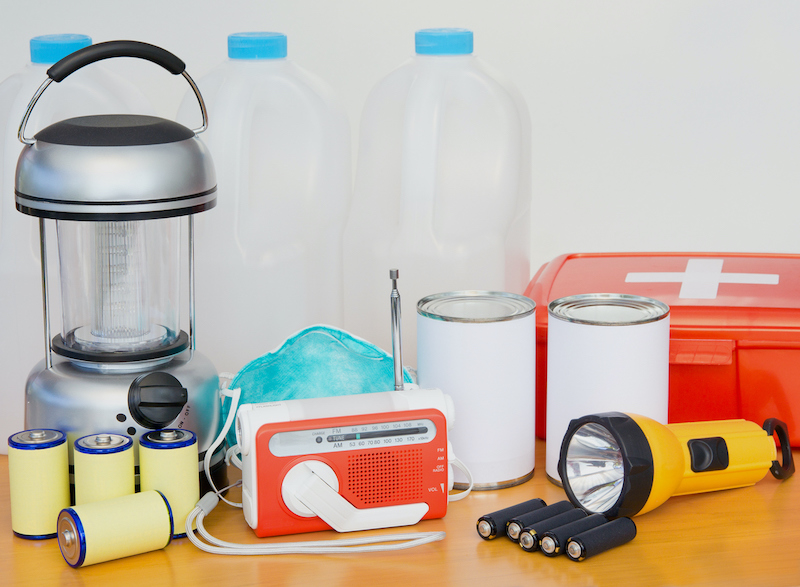Hurricanes, floods, wildfires and other natural disasters can turn your world upside down. If you have never experienced a major natural disaster that results in a large loss to your home or damage to your community, you should gain an understanding of the proper response to this type of emergency in case it ever occurs to you in the future.
Why Preparation for Natural Disasters Is Essential

The first step in surviving natural disasters begins before the event occurs. Prior to an evacuation order, put your insurance documentation and other important papers, as well as medicines and irreplaceable items, into a weatherproof container. Second, develop a plan for the care of your pets and anyone with mobility issues.
Third, stock up on non-perishable foods and drinkable water in your household. The food and water will be useful when you return to your home after an evacuation, since local stores may be closed or their inventory may be sold out.
Evacuate When Authorities Give You the Order
In the case of major weather events such as hurricanes, there are often several days of advanced warning. However, it is best to avoid waiting until the last minute to evacuate your home.
Once a community is identified as being under threat from a natural disaster, stores sell out of many items, including non-perishable foods and water. Similarly, gas stations quickly sell out of fuel.
During an evacuation, routes quickly fill up and traffic jams occur. Unfortunately, it is not uncommon for community residents to wait until the last minute to evacuate. By then, it becomes unsafe to evacuate because of the close proximity of a hurricane, flood, or wildfire, and you are much more likely to become a victim.
In fact, 20 natural disasters in 2021 accounted for $145 billion in damages in the U.S., according to CNBC. CNBC also notes that about 688 people died in these natural disasters.
RELATED: Why Don’t Reporters Focus on the Aftereffects of Disasters?
Staying Safe During the Disaster
As hurricanes, fires or other threats approach, do everything possible to stay safe. You might need to go to an emergency shelter or combine your resources with neighbors.
As soon as the danger is over, check that your family and friends are safe and then assess the damage to your home. Be very careful because natural disasters can cause hidden dangers.
For example, electrical lines will be down after a hurricane and venturing into floodwater could result in drowning. In homes that experienced severe damage, the structure of the roof or other part of a home could be weakened, collapse, and crush you.
RELATED: Knowing Your Community Is Critical in Disaster Management
Document Any Damage
Ideally, it is best to take photographs of the damage that natural disasters create as soon as it is safe to do so. Pictures will be helpful when you file an insurance claim because images can help explain how household damages occurred.
In addition to photos and written documentation, do what you can safely do to mitigate further damage and contact emergency remediation services for household repairs as soon as possible. When you deal with insurance, be fully honest, provide all of the documentation you have of the damage, and answer all of the insurance adjuster’s questions.
Use the Services FEMA Provides
Following natural disasters, be sure to take advantage of emergency support services offered by organizations such as the Federal Emergency Management Agency (FEMA). FEMA personnel can assist you with putting a tarp over a roof to prevent further damage (FEMA funds a program called Operation Blue Roof run by the Army Corps of Engineers), obtaining non-perishable food and other services.
Lessen Your Stress by Properly Preparing for Natural Disasters
Surviving natural disasters, their aftermath and the high stress they cause is possible. However, preparation and understanding what community resources are available to you is essential for a faster recovery.

Comments are closed.